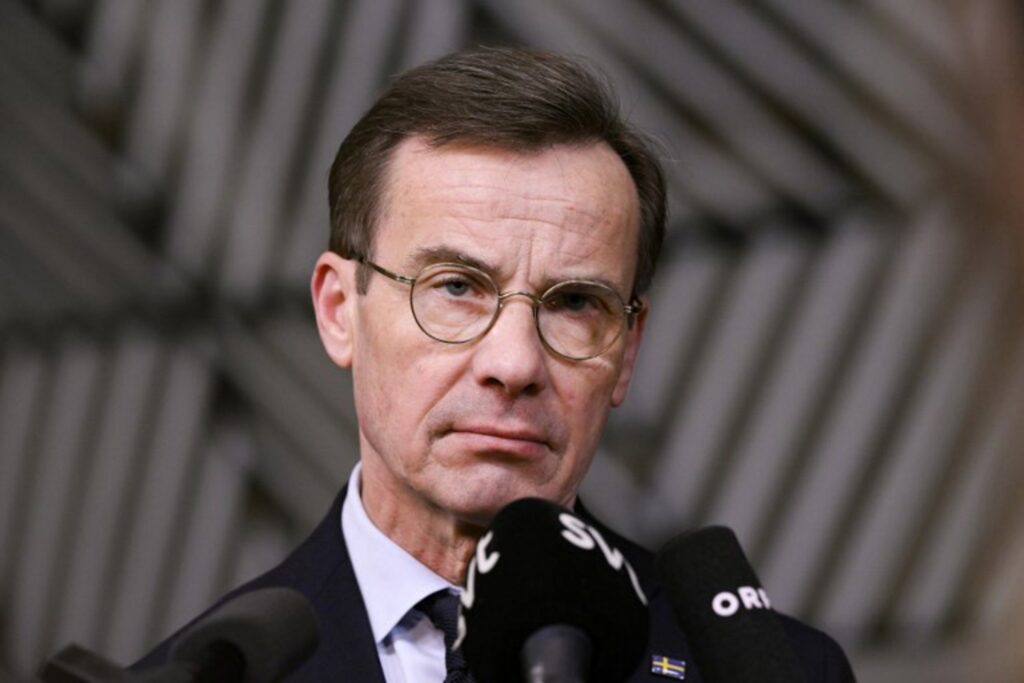Sweden is not at war but is also not at peace, Prime Minister Ulf Kristersson declared on Sunday, citing hybrid attacks and a proxy war on Swedish soil.
Kristersson made these remarks at the annual Folk och Forsvars National Conference in Salen, central Sweden. He stressed that Sweden and its neighbours face hybrid attacks through computers, money, disinformation, and sabotage threats, rather than traditional military means.
The Prime Minister noted that the current security situation and unusual activities in the Baltic region suggest that hostile intentions cannot be dismissed. However, Kristersson did not attribute the responsibility for recent damaged cables to any specific country.
Discussing hybrid attacks more broadly, he mentioned that the Russian threat is likely long-term and that Sweden’s defence must be equally enduring.
The Swedish government takes this situation seriously, recognising that the country is living in an era of proxy warfare. Several electrical and telecommunications cables have been damaged in the Baltic Sea in recent months.
Experts and political figures believe these actions are part of a "hybrid war" by Moscow against Western countries in this maritime region, bordered by several NATO members and Russia.
Sending ships to Baltic Sea
Having joined NATO in March last year, Sweden is now sending three naval ships and a surveillance aircraft to the Baltic Sea to monitor the Russian shadow fleet, Prime Minister Ulf Kristersson also announced on Sunday.
Following several recent incidents involving damaged underwater power cables in the Baltic Sea, NATO has deployed ships to protect infrastructure. These ships are also tasked with observing the Russian shadow fleet.
Due to the ban on Russian ships docking at European ports and the prohibition of Russian oil exports to the EU, Moscow is using vessels without clear registration or flags, suspected of sabotaging the cables.
As a new NATO member bordering the Baltic Sea, Sweden is contributing three naval ships and a surveillance aircraft to the mission. According to the German news agency DPA, around ten ships are participating in the operation. NATO has not provided official details about the mission.
On Sunday, Kristersson did not directly accuse Russia of sabotage, but he stated that he is "not naive." He suggested that a series of unusual incidents in the Baltic Sea indicates that hostile motives cannot be ruled out.

